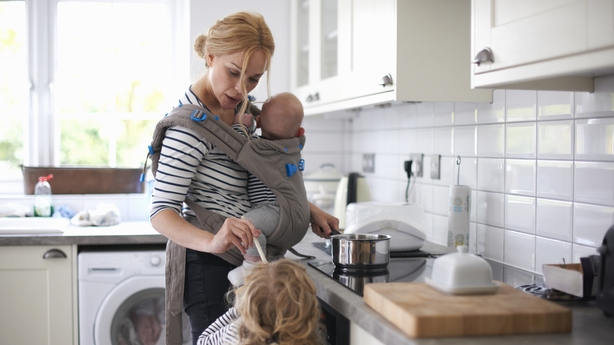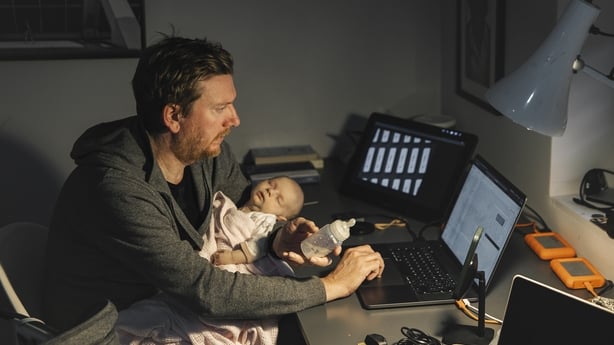We all know the struggle of trying to do three jobs at once. When we're short on time and staring down a long to-do list, multi-tasking seems to be the only way to get everything done in a day.
However, when you're making dinner while also sorting your phone bill while also helping kids with their homework, for example, are you really being that productive?
Dr Harry Barry, GP and mental health specialist, and Dr Ann-Marie Creaven from the Department of Psychology at the University of Limerick joined Today with Claire Byrne to discuss multi-tasking, and whether it saves as much time as we think.

There are actually two kinds of multi-tasking, Creaven said: doing multiple tasks without having to do them at the same time, such as switching from cooking to wiping down the counter; and when you have to do two tasks at the same time, such as trying to read a newspaper while also continuing a conversation.
Barry added that the conversation changes once again when you look at how men and women differ when it comes to multi-tasking, a long-standing debate.
The common assumption is that women are much better at multi-tasking than men, "because women, from an evolutionary point of view, were the homemakers. They had to be involved in so many different tasks that they naturally became very good multi-taskers".
"It was a cop-out for men, which in fact in many cases it is", Barry said.
However, he noted that there are some neurological differences that might back up this assumption.
"The male brain works better from back to front, more connections from back to front so they're better at doing single or complex tasks, where women have better interactions between the two sides of their brain, the right and left side of their brain, so naturally are skilled at multi-tasking.
"That does not mean ... that this is necessarily a good thing, and it's certainly not an excuse for men to cop out of all the different chores", Barry added.

Creaven, meanwhile, said she was "suspicious of when men say women are better at multi-tasking because I wonder what is the task they're trying to get out of".
She added that neurological differences don't mean that men cannot multi-task, either. She noted that women "have more experience multi-tasking because of the gendered roles in work and home life".
"Generally, a lot of neuroscientific studies can have a sample of people that is a little too small to make the kind of conclusions we'd like to make. And then when you look at the multi-tasking literature people are often doing multi-task situations in labs, which don't necessarily reflect the real world of what we actually do when we're doing multiple tasks."
Creaven added that literature tells us that men are excellent at multi-tasking in sport, which suggests there are places where it can be done well by all genders.
"Are women better", Creaven asks, "or are they just trying harder?"
Multi-tasking, Creaven noted, "has cognitive effects" on our well-being. "When people engage in multi-tasking you're basically practicing dividing your attention and being open to distraction, so that's not really good for your cognitive function in the time immediately after these bouts of multi-tasking."
It can be especially harmful when it comes to the "cognitive and emotional labour that does fall to women, that mental load", she added. This includes scheduling, organising, planning and watching over daily tasks and needs.

Barry spotlighted the threat of burnout, too. "A lot of men are burnt out, but a lot of women are very burnt out."
"If you try to multi-task consistently, you're pumping out high levels of your stress hormone cortisol and that has a very negative effect on your brain and on your body."
Exhaustion, sleep issues, lack of motivation and feeling like a "machine" are some symptoms of burnout. "We become a lot less efficient in the work-place than we think we are."
Although there are positives to multi-tasking, such as having more time once your multiple tasks are completed, "the price is very high", Barry said.
To listen back to the full conversation, click above.

